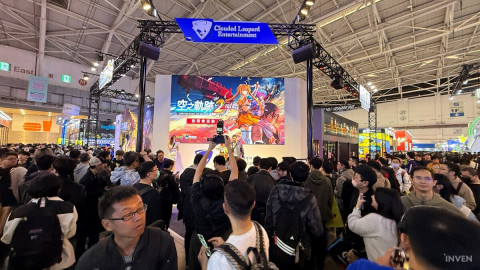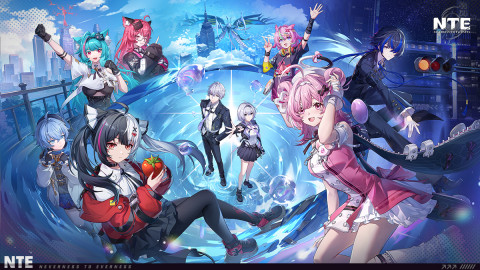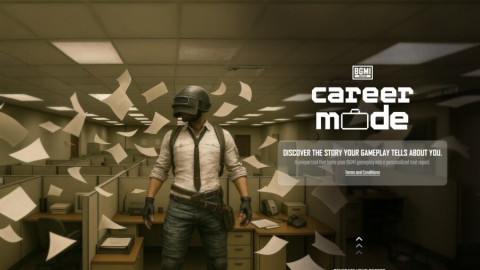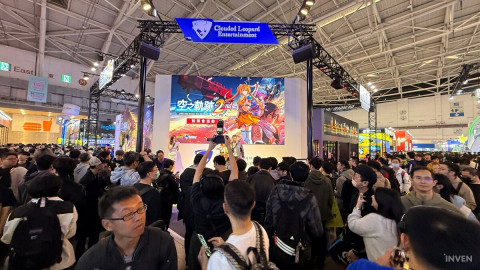
“Meet the Koreans” is a series of articles dedicated to introducing and popularizing Korean Overwatch and its storylines among Western fans. This entry revisits Meta Athena's streak of dominant performances, the topic of their championship hopes and tries to figure where that puts them in Overwatch's esports history.
For many Overwatch fans, the inaugural season of Blizzard's Overwatch League will be the first clash the game's esports scene. However, that does not mean that has lacked for compelling storylines, intriguing characters and teams and fierce competition prior to it. One of those intriguing stories is that of Meta Athena's run in APEX S2 and the prior season of OGN's underleague, APEX Challenger, which qualified them for the tournament.
Throughout the course of twenty Bo5 consecutive wins, the five-man core of NUS, Kris, Hoon, Sayaplayer and Libero (joined by multiple different main tank players at different points of time) dropped only eleven maps and swept their opponent 3-0 on twelve occasions. They were not only a dominant force on the servers, but also one of, if not the, most entertaining teams to watch at the time. And even though their journey ended in the semifinals of the tournament, without them finishing their royal road run, the squad is one of the most important to the development of the game's professional scene and the way teams approach the game. Similarly to most of the other top teams at the time, Meta Athena wasn't particularly diverse in their strategical approach. Unlike the rest though, the squad had a playbook filled with a variety of tactics, point-specific executes and constantly adapted to opponents on the fly. While a squad like Runaway captured fans' hearts with their personality and storylines, Meta Athena captured both the hearts and the minds of fans with their smart and exciting play.
While some remained skeptical of the team's chances of winning APEX S2, eventually -- as a result of their streak and superb play -- most fans, pundits and analysts at the time considered them a strong favorite. However, looking at their run in retrospect, despite all the success they experienced, a strong case can be made that the team should have never been considered a favorite -- even without the knowledge of what happened to them in the Ro4 and following seasons of APEX. To make figure out whether or not that is the case, we are going to retrace the streak from beginning to end, and their evolution as a team in the context of their contemporaries at the time.
“HOON ULTS AGAIN”
Meta Athena's wins in Challenger were of much lesser relevance to their championship ambitions than the ones in APEX. Nonetheless, they can't be skipped when talking about the team's run for more than one reasons. Most importantly, this is where the squad mastered its signature playstyle. Whereas most Korean squads stuck to 2-2-2 compositions and some even attempted running 2-1-3 setups (two supports, one tank, three dealers) at the height of the tank metagame, Hoon's boys were among the early adopters of the tank meta. Though, rather than utilize the setup that got EnVyUs' two trophies, or go all-in with a four tanks setup, like some other overseas teams did at the time, Meta played to their own strengths.

This meant having Hoon's Zarya as the centerpiece of almost all of their strategies, with Libero more often than not taking on the D.Va and JaeTwo, later replaced by ChangSik and Alpha, on the Reinhardt. As the squad's play was focused primarily on their tank players -- even more so than many other teams at the time -- Sayaplayer had to fill the role of an extremely self-sufficient hitscan damage dealer. On the flipside, Meta's approach allowed him the freedom to seemingly act entirely on his own accord and didn't put on him the burden of having to carry the team. Combined with Kris' aggressive Lucio play and NUS' self-sufficient Ana, it made for a weird, yet highly effective strategy of play.
With a solo-queuesque forward positioning -- often in front of his Reinhardt's shield -- to charge-up the energy meter, Hoon's play was reminiscent of what BERNAR and zunba did in APEX S1, but took the carry aspect to an even higher degree. His ability to charge Graviton Surges in a rapid manner -- which Meta almost always converted into a teamfight win -- impressed fans so much that they came up with the phrase “훈또궁”, roughly translating to “Hoon ults again”.
Even though others contributed to the system, which enabled him to play in such a manner, it was clearly the Zarya specialist's devastating performances that were the primary force behind the the team's wining streak. To play like him one needed not only a hard-carry mindset, but also lightning fast reactions and an unerring aim to make it work. Hoon had all three. However, unlike other players who possessed similar qualities and playstyles -- for ex. KongDoo's Butcherr and EVERMORE -- Meta's star also showcased an acute game sense as he often backed off in the right moments to avoid getting caught. Unfortunately, the stretch of his own individual performances was eventually cut short by the metagame shifting away from the pink-haired bodybuilder. This took away from fans the opportunity to see if he could have sustained the incredible level of play he showed for a prolonged period of time. Nonetheless, it demonstrated how hard can an individual impact a game of Overwatch as his APEX S2 games are still some of the hardest carry performances at the professional level. The game's short time as an esport is certainly a factor in this, but few other players have shown the ability to maintain a consistently elite level of performances with a similarly aggressive playstyle when their whole team is relying on them.

GETTING TO THE NEXT LEVEL
Finishing Challengers S2 undefeated, Libero and co. qualified for the APEX S2 promotion tournament, already having won 13 Bo5s in a row. Despite a tough series against Rhinos Gaming Titan, one of the bottom teams in APEX S1, Meta maintained their streak as they collected the win and later swept MVP Infinity, the soon-to-be worst APEX S2 team, to qualify for the second season of OGN's tournament. At this point, Libero and Kris had already started showing shades of the players they'd evolve into throughout the season, but neither of them was there already. And even though fifteen Bo5s winning streak was impressive as a number, the context made it considerably less so. They had barely gotten to face any top opposition. Some of the teams they played in Challenger and the promotions featured talented individuals, but none of the units was, or went on to become, a good squad. Nevertheless, the team had already started turning heads amongst both Korean and international fans. Regardless of the lack of serious competition in Challenger, they were regarded as the best 'tank team' on the peninsula as the season was starting.
However, by the time APEX S2 started, the metagame, particularly in Korea, had already started shifting in favor of two-DPS compositions. Some theorized that, as a result of their playstyle, Meta would have huge trouble getting past the better dive-oriented teams -- namely Lunatic-Hai and LW Blue -- as the way Hoon and co. played left them susceptible to getting picked apart by a more mobile setups. Fortunately for them and their fans, they got drawn in a group without any such squads.
EnVyUs, the top seed and APEX S1 champion, had their own problems evolving past the triple-tank setups as the squad lacked players who could play Genji and Tracer at a high level. Additionally, Mickie's Zarya didn't fit into the lineup nearly as well as his D.Va. The other contender for a top spot in the group was BK Stars who had finished top4 in the previous season. Despite the past success, strong individual performers whose hero pools fit in the metagame, including the impressive rookies Prove and Carpe and the addition of coach NamedHwi (cur. of Philadelphia Fusion), the squad failed to put it all together for APEX S2. They showed promise by the end of the group stage, admittedly against the aforementioned MVP Infinity, but it was too late as they had already lost to both EnVyUs and Meta.
Losing only two maps for the three matches of the group stage, Hoon and co. extended their streak to 19-0 and headed into the Ro8 draw as a 1st seed, getting a favorable selection. With the next stage of the tournament, the metagame continued shifting further away from Meta's domain of expertise, more and more in favor of diving. In their first match of the Ro8, they took down Afreeca Freecs Blue 3-1. The dive worked for ArHaN's boys at different points in time, but his squad lacked the cohesion and had its own backline trouble. However, AF Blue's limited success confirmed the suspicion that Meta was particularly susceptible to well-executed dives. Fortunately for them, that wasn't the area of expertise of their next opponent, KongDoo Panthera. Meta's tactical prowess was put on display once again as they neutralized EVERMORE's Roadhog and forced him to change to Zarya, which left put him out of his comfort zone. The approach leads to an easy 3-0 as they shut down one of the most individually talented squads in the tournament.

A RETROSPECTIVE EXAMINATION
At this point, most reservations regarding Meta were gone as the five-man core of Kris, NUS, Hoon, Sayaplayer and Libero was on a twenty Bo5s winning streak, a significant number of which 3-0 sweeps. The team had shown superb teamplay, multiple strong individual performers and a number of innovative setups, most memorable of which their Mei boosts. Many viewed them as the favorite for the tournament as they were not only successful but also, thanks to their tactical variety, entertaining to watch. Yet, the new metagame continued looming over their heads as the rookies were yet to face an elite diving team.
Heading into the Ro4, all three of their potential opponents had shown to a varying degree mastery over dive-orientated compositions. While Meta's players had the hero pools to play said compositions as well, they didn't fit the strengths of the team's personnel. Libero's versatility had often drawn comparisons to TviQ, but the young Korean hadn't shown himself able to put the team on his back outside of his brief showing on Hanzo. Sayaplayer had proven himself to be a solid roleplayer, but his main strength at that point of time was the ability to be effective on whatever hitscan dealer the team needed -- without requiring much, if any, resources -- rather opposed to carrying. This meant that every time Hoon picked D.Va, or switched to a more supportive approach with the Zarya, the team would take a severe hit in terms of damage output and the rest of the team wasn't able to make up for it. Meta performed at a significantly higher level with Hoon as the centerpiece of their strategy and for all the tactical prowess held by the team, no clever execute could change that. Other than its signature style, Meta held two more aces up its sleeve, but both Libero's Hanzo and the even more situational double-sniper setup were just as susceptible to dive compositions.

The Ro4 put the squad between a rock and a hard place. If the team continued using what they had shown so far in the tournament, they could easily get picked apart by their opponents' mobile setups. At the same time, if they decided to change up things and follow the meta, they would have the team's otherwise best performer playing at a diminished level. Whatever their choice was, they'd find themselves at a disadvantage as the metagame shifting toward Winston, D.Va, Tracer and Genji benefited, to a varying degree, all three of their potential Ro4 opponents.
Lunatic-Hai, which they drew to meet in the semifinals, presented the best opportunity Meta had of advancing to the final. Korea's golden boys, similarly to Meta, continued relying on Zarya, even though other teams had started replacing it with D.Va in their compositions. Still, zunba's role differed from Hoon's. Whereas the latter was the primary carry of his team and had to output as much damage as possible, the former played a more supportive role. zunba's main focus was to keep Lunatic-Hai's backline safe when the rest of the team was diving. This meant that Ryujehong always had backup assigned to him, even when tobi gave in to his bloodthirsty tendencies. Contrasting this to Meta, NUS' traditional support play left him in no-man's land, especially during the team's brief time the Winston, Tracer, Genji combo. With Kris and Hoon favoring aggressive play, he had to fend off for himself when the rest of the squad was diving. This point of vulnerability was much harder to exploit by the tank-focused deathball compositions, as barring flanks those lacked the mobility to reach and isolate him in a duel or 2-on-1.
Runaway and LW Blue, the other two teams in the Ro4, had even better match-up against Meta. At the time, both squads were better at adapting to their opponents than Lunatic-Hai in addition to having stronger dive cores and not relying on Zarya, or other heroes who were getting phased out of the metagame.
THE AFTERMATH
Unfortunately for Meta and their fans, the disadvantage was too much for them to overcome. They tried utilizing dive setups as well as their standard, Zarya-focused, style, but neither that, nor the set executes or any other trick they pulled from their bag was enough for them to win. Lunatic-Hai had identified the way to beat Meta and slowly but surely squeezed them out for a 3-2 win. Utilizing the blueprint Lunatic-Hai unveiled, LW Blue also took Meta down in the third place match. Going forward, Hoon's boys attempted to stay up to date with the metagame themselves, but -- with Hoon lacking the game impact on non-Zarya heroes and other individuals having their own problems as well -- top teams dealt with them without much trouble.

With Libero joining New York Excelsior, Hoon being moved to Meta's second team (Bellum) and the squad having undergone other changes an eventual reunion of that particular core of five players seems implausible. As such, the Meta Athena that went on a 20-0 Bo5s winning streak will exist only in people's memories and Overwatch's history books and will have never won a tournament. While hindsight is 20/20, the seeds for their demise were always there, even if not as apparent. Despite their dominant period, Meta Athena's chance of winning the tournament was minuscule and, in retrospect -- removed from all the hype and excitement -- it is hard to view them as a true contender for the APEX S2 title.
Yet, regardless of their short-lived time at the top, they will remain one of, if not the, the most important teams in the game early history as an esport. Beyond the tactical innovations and entertainment value of their performances, they showcased a new way to play Overwatch. As soon as the following season of APEX, we saw a number of top Korean teams adopting a more thought-out approach with set tactics and executes. Pundits and analysts often theorized that versatility is the key to teams staying on top of the professional scene for a prolonged periods of time. Up until Libero showcased how to utilize it for tactical adaptation, however, versatility had much less impact on a team's immediate success than whether the overarching metagame, often set by patches, fit said the team.
To quote MonteCristo, despite Meta Athena's flaws, the team simply “played as if they came from the future of Overwatch”.
(Photo Credit : OGN)
About the author:
Hello readers, I go by the ID RadoN! I’ve been following different games within the esports industry ever since finding out about it in 2009. The titles that I follow closely for the time being are Overwatch, CS:GO and Quake, while occasionally dabbling in some other games as well. If you wish to reach out, follow future content, or simply know more about my thoughts on esports and gaming, you can find and follow me on twitter at @RadoNonfire.
Sort by:
Comments :0






